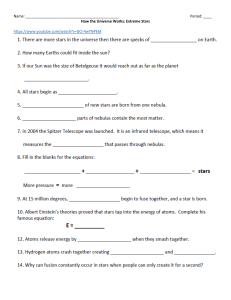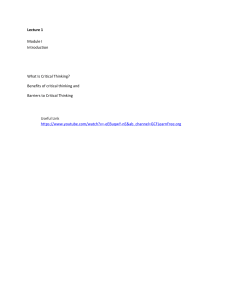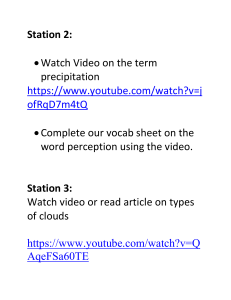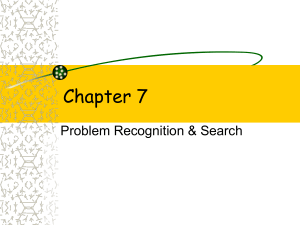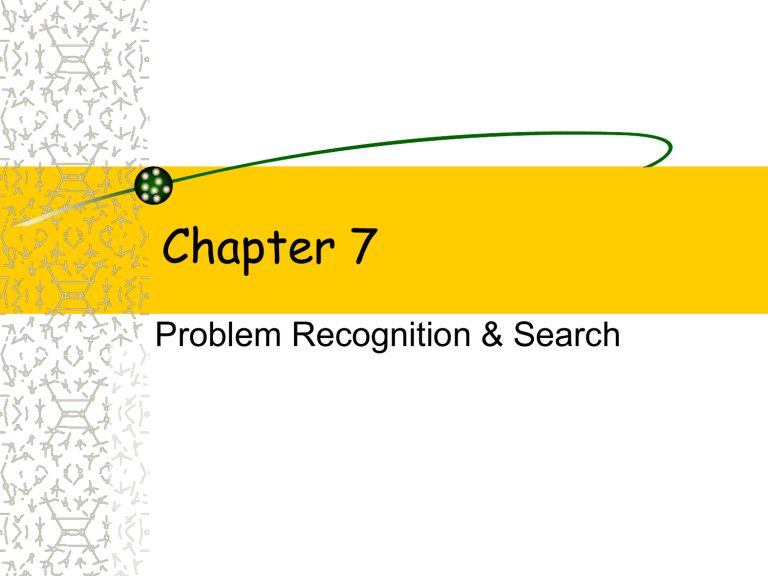
Chapter 7 Problem Recognition & Search Learning Objectives 1. To understand consumer problem recognition and the decision making process. 2. To know how & why consumers conduct internal search. 3. To know how & why consumers conduct external search. 4. To access challenges marketers face in influencing consumers’ searches. Problem Recognition and Information Search Problem Recognition Ideal State: Where we want to be Actual State: Where we are now Stimulating Problem Recognition Create a new ideal state https://www.youtube.com/watch?v=lhxPHtO EP3k Create dissatisfaction with actual state https://www.youtube.com/watch?v=nM8oyr KY_ZE Position as solution to problem https://www.youtube.com/watch?v=0xzN6F M5x_E Internal Search Searching for Information from Memory Degree of internal search(MAO) Kind of information recalled: – Brands – Attributes – Evaluations – Experiences Brand Recall Consideration or evoked set Vary in terms of: – Size – Stability – Variety Brand Recall Prototypicality Familiarity Goals/Usage Situation Preference Retrieval Cues Attribute Recall Accessibility/Availability Salience Vividness Goals Diagnosticthe informational value of an interaction, event, or feedback for someone seeking self-knowledge. Information with high diagnosticity has clear implications for the self-concept, whereas information with low diagnosticity may be unclear, ambiguous, or inaccurate Is Internal Search Accurate? Confirmation bias—Self-affirmation https://www.youtube.com/watch?v=Kho5KvP BDSw Inhibition – Consumers don’t always consider key aspects – Consumers recall other, more accessible attributes Mood Reject vs. Accept External Search: Searching for Information from Environment Sources of External Information Retailer Media Interpersonal Independent Experiential Internet Internet Sources https://docs.snap.com/lens-studio/references/templates/object/clothsimulation-try-on/#hoodie---auto-paint Keyword search Shopping agents Information overload Simulations Online community Social Media ©adage.com Measures of Online Consumer Activity~1 Measures of Online Consumer Activity~2 Effort to Process Information Influenced by – Motivation – Ability – Opportunity – What motivates you to process information in advertising? Motivation to Process Information Involvement and perceived risk Perceived costs and benefits Consideration set Relative brand uncertainty Attitudes toward search Discrepancy of information Ability to Process Information Consumer knowledge Cognitive abilities Demographics (education level, SES) Opportunity to Process Information Amount of information available Information format Time availability Number of items being chosen Information Acquired in Search Accuracy? Search by: – Brand – Attribute – Brand name – Price Questions?

